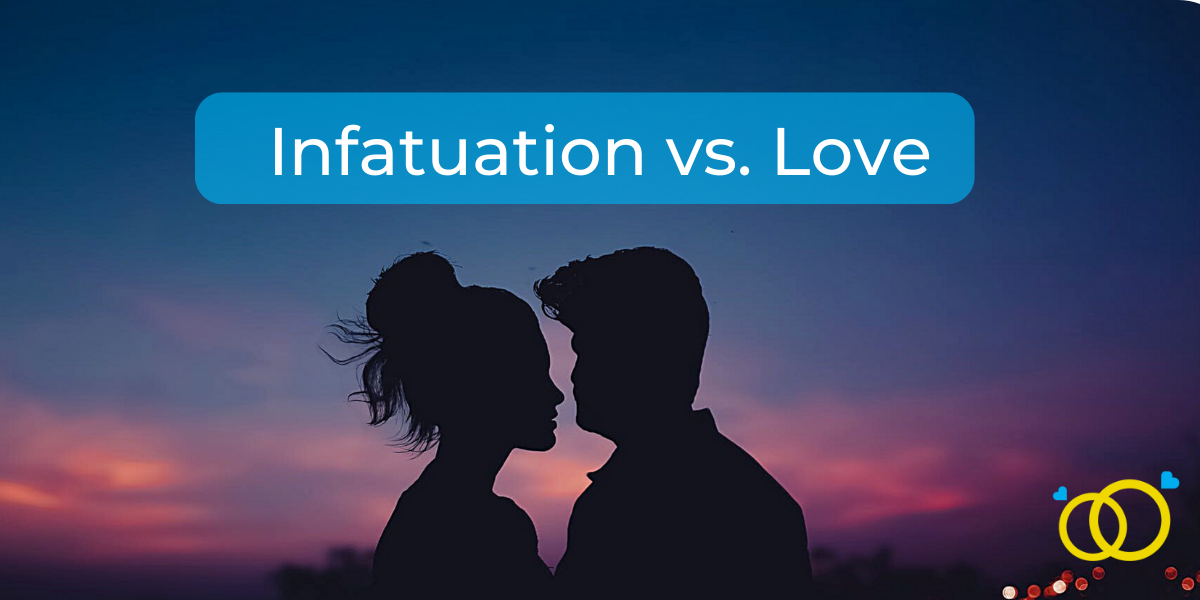Love or Infatuation. How To Tell the Difference
Search Gallery
25.10.2024

Subconsciously, we understand that love is worthwhile and important, and infatuation is a fake imitation of love. How can we distinguish love from infatuation? What is the difference? Infatuation is often strong and short-lived, while love is more stable and long-lasting. In addition, infatuation is often sexual or romantic in nature, while love can be sexual, romantic, platonic, spiritual, and familial.
Defining Love and Infatuation
Even modern science has not been able to give an exact definition of love. Some people are sure that this feeling originates in a person's soul, while others are convinced that love backgrounds are the body's reaction to hormones. Most often, people represent the state of falling in love as follows: love can be considered when one person feels a sense of strong affection for another person and can do anything for the object of his love without any material reward.
From a psychological point of view, science gives the following definitions of love:
Love is the poisoning of the human body with the natural internal hormone oxytocin. Thanks to it, a person feels the need to bestow his love on others and be loved.
Love is a nervous disorder in which a person commits rash acts, is in a state of prostration, and experiences memory deterioration.
Love is a common habit between two people who are comfortable being together. They have developed a habit for each other, and together, they consider themselves a happy couple.
But every person has the right to choose whether to believe such definitions or to think that love is born in the heart and remains there to live forever.
Infatuation is a strong, positively colored feeling (a complex of feelings) directed at another person.
You can define infatuation as an acute emotional experience, an appeal to the object of sexual choice. Unlike a more constant and stable feeling of love, it tends to quickly become saturated and fade away. Falling in love is an individual characteristic, depending on the peculiarities of a person's perception of a partner in intimate contact. In this case, external, superficial features and qualities are distinguished in the object of love.
Usually based on physical sensations accompanying, for example, touches - excitement, trembling, heartbeat.
Love: Deep emotional connection, commitment, and mutual growth.
Infatuation: Intense but often short-lived admiration or obsession.
Key Differences Between Love and Infatuation
It is paradoxical, but these two emotions are fundamentally distinct.
Although both love and infatuation initially manifest themselves equally brightly and are associated with warm emotions, tenderness, and passion, over time, the distinction between them becomes noticeable. Infatuation is short, while love can last a lifetime. Unlike infatuation, love is able to withstand many trials and long separations.
Love goes through many stages over time. It transforms and grows. We can say that infatuation is the first stage of love. But no one can guarantee that the next stage will come, and infatuation will turn into love.
What is the difference? In short, it can be described as follows: when you are in love, you are focused more on your feelings, your comfort, and happiness, and love assumes that you first think about your loved one and his needs.
Infatuation is a more selfish feeling. A person in love is ready to accept only tender emotions from a partner to receive pleasure and joy. A person who experiences love accepts his beloved in any mood and condition.
Comparison:
- Time: Love grows; infatuation is often immediate.
- Depth: Love involves deeper emotional connections; infatuation is surface-level.
- Commitment: Love is steady; infatuation can fade quickly.
Signs to Differentiate
Often, people believe that infatuation and love are two feelings that cannot exist separately.
In fact, both of these feelings are completely different, but many simply do not know how to distinguish signs of a simple attraction to a person from true love.
Let's highlight the differences:
- Most often, infatuation is tied to the thirst for physical contact with the person you like
All falling in love, which at that moment seems like love at first sight, is, in fact, sympathy and attraction. Love cannot arise between people at the snap of a finger, as it happens in fairy tales and films.
- In a couple where infatuation is traced, grievances and quarrels are remembered for a long time
Quarrels can also exist in love relationships. Grievances are often forgiven since the relationship itself is built on spirituality. A person cannot hold a grudge against a loved one and does not blame the chosen one for past mistakes.
- Infatuation is a feeling that can destroy a person from the inside
He devotes so much of his strength to keeping the object of his affection close by that he begins to waste his life force. Love emotions motivate and give a person strength, thanks to which, being next to his other half, he does not waste his life energy, but on the contrary, is fueled by new strength.
- Infatuation is a superficial feeling
Today, a person can feel it, and tomorrow, no longer while love goes deeper. If it arose once, then getting rid of it is extremely difficult.
- Infatuation is an imaginary concept
A person can make plans for a life together and the future, but in the end, he will only be disappointed. Love is real and can build an ideal life for two loving people.
- Generally speaking, infatuation is a negative feeling
More often, it brings only disappointment and exhaustion of emotions. While the feeling of love is a bright and warm feeling. A couple in whom love reigns is able to enjoy each other spiritually and bestow kindness on others.
Can Infatuation Turn into Love?
Can infatuation turn into true love? Yes, but for this, you need to work on your relationship. You need to learn how to build it. After all, love is like a dance. If you can't dance, you learn, right? The same is true in relationships.
How to build relationships?
- Learn to negotiate. You must discuss your interests and desires and listen to your partner's opinion. If each of you sticks to your own line without trying to compromise, falling in love will quickly fade, and love will never come.
- Learn to trust. Study your partner's psychology. Men and women see relationships differently, and this must be known and taken into account.
- Long-term relationships are possible without falling in love. These can be consumer relationships, relationships out of a sense of duty, or rational relationships. But still, in order for true love to be born between partners, it is necessary to develop all these aspects proportionally, including physical interest and passion.
The difference between infatuation and love is essential when creating meaningful relationships. Infatuation is usually intense, fleeting, or driven by lust or ideals, whereas love comes to life slowly on a foundation of trust, understanding, and mutual respect. Infatuation may signify the beginning of a connection or spark partway, while love usually indicates a pathway to emotional liberation and stability over time. Realizing what one regards as infatuation will not be the basis of expectations and learning from it leads to a healthier, true and more fulfilling connection. This allows people to embrace both stages as they discover more about themselves and their partners to have better connections.
